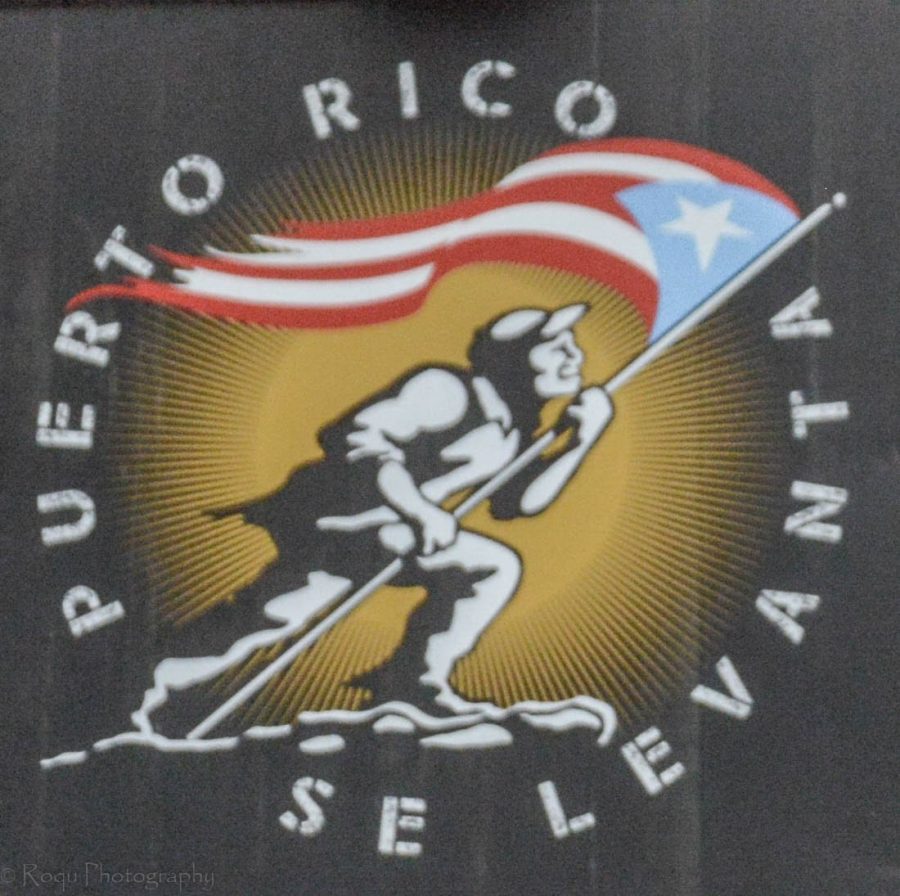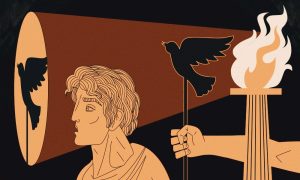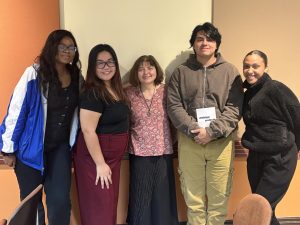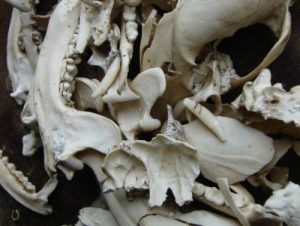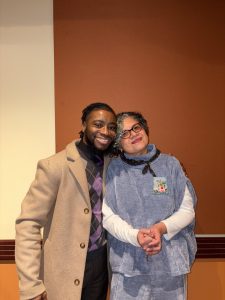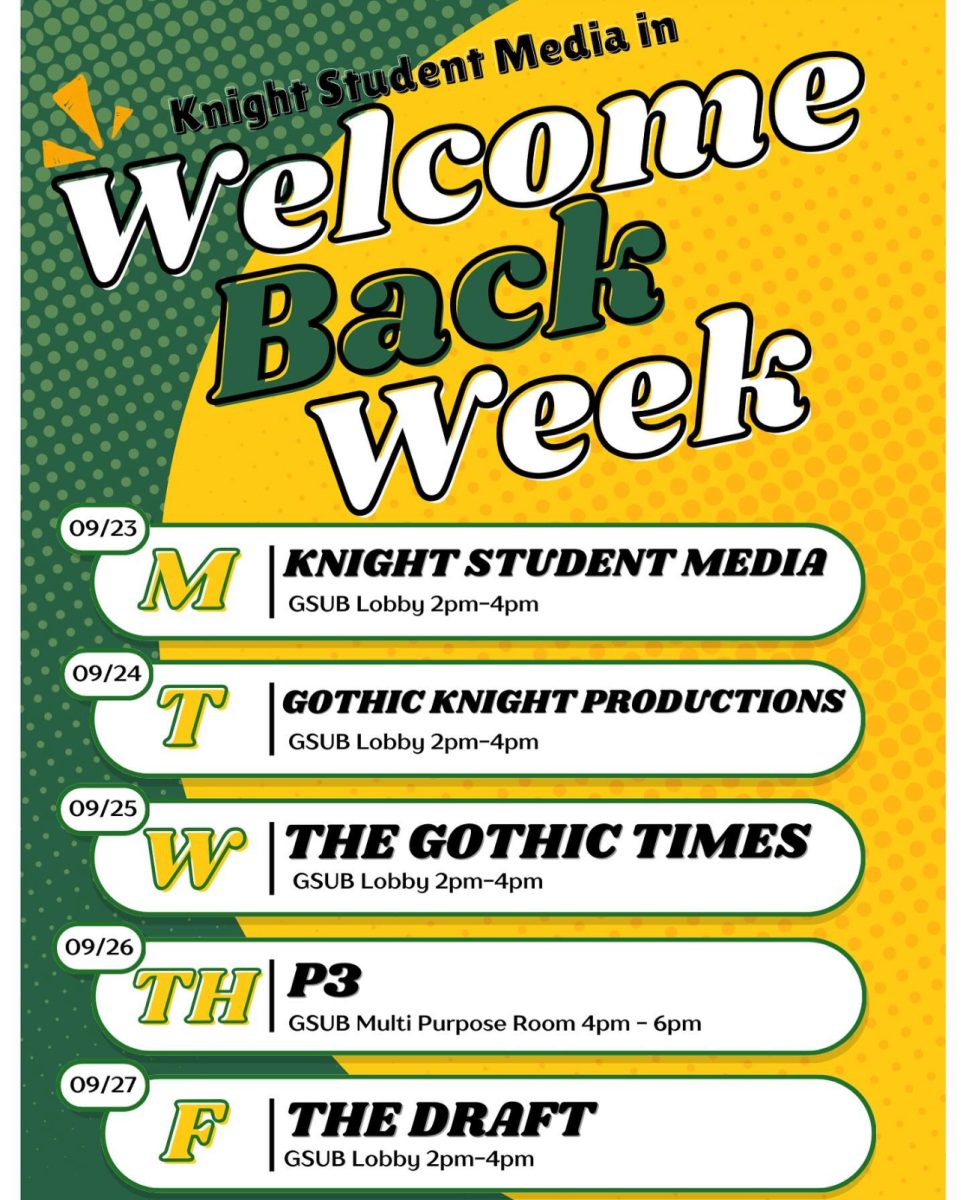Life After Maria
May 24, 2018
It has been six months since Hurricane Maria ravaged through Puerto Rico, leaving millions without water or power. Between September and November, 179 thousand people left Puerto Rico for the states according to federal data obtained by CNN. As of March 6, the government of Puerto Rico is expecting 200,000 more residents to leave the island for good by the end of 2018.
Judith Mendez, a relative of Natalie Mendez, a senior at NJCU, went to Puerto Rico two weeks after Hurricane Maria. Mendez, a nurse, traveled to the island to help the struggling hospitals. Officials told her that there was nothing they could do to help once she arrived to Puerto Rico.
When she arrived, she was housed at a community center where they all slept on cots.
There was a generator in the community building they were staying in. Meanwhile, the people around them had no power. Mendez noted that there were many people already thinking about leaving Puerto Rico because food rations were beginning to spoil. Things were becoming dire for many. According to Mendez, the government did not assign duties to nurses who were on staff. The nurses took it upon themselves to periodically check up on the Puerto Rican natives.
Ivelisse Cruz, a pre-school teacher at NJCU’s Children’s Learning Center
saw the damage that Maria caused to Puerto Rico firsthand when she went to the island for NJCU’s Alternative Spring Break. Cruz said, “I was overwhelmed with emotions when landing… Driving from the airport you could see so much damage, trees on the ground, buildings, signs falling off and homes destroyed from the hurricane. Being able to help clean up a lot of the areas was so rewarding.” Cruz also helped cleaned up an abandoned building which would serve as a homeless shelter. “Overall the experience was humbling, I loved being able to go back to an island I call my homeland and meet new people.”
Cruz shared how her family was affected by the hurricane. In October, her cousin had to come to the U.S. to stay with his brother in Bayonne. Cruz’s cousin lost his job because of Hurricane Maria. He worked for three months in N.J. to help support his family back at home. Cruz’s aunt’s house also caved in because of the hurricane. As a result, she is currently living at her daughter’s house in Puerto Rico.
Ida Masa, the Administrative Assistant at the Hub, shared her experience when she made the trip to the island in February. She described the devastation that you immediately see even before landing on Puerto Rico’s soil. “Flying in,” she said, “you can see the blue tops on the houses that lost their roofs… everything is stripped and up rooted, it was like walking in a warzone.”
Masa said that many were considering leaving to the mainland. “These are all well educated, hard-working people. Some even work two to three jobs to have a good quality of life. Many People are now out of a job. The retail shops, the malls, those are all gone. There are now many people working on the power grid and no traffic lights working on certain areas of the road.” Masa says that people are even volunteering to be crossing guards.
After Maria, Masa tired to communicate with her father by reaching his landline. She was able to reach him a few hours before the storm gradually worsened. But once the storm began, she had no way to contact her parents. It was not until a week later that communication finally went through. Masa wanted to retrieve her parents, but they couldn’t bear the thought of leaving their homeland for good. When Masa offered to bring them to the U.S., they asked “For what? To remake my life all over again?”
Masa wants us to put what Puerto Ricans have been through intro perspective: “Compare what we went through here when Sandy hit, would the United States be able to function normally and survive six months after the fact without running water or stable electricity? Could we really match the strength that these people have shown? Would we really be able to endure all of this for so long?”
Monica Sarmiento, editor-in-chief of The Gothic Times, also has family in Puerto Rico that was deeply affected by Maria. Her grandparents live in Coamo, a town located in the southern region of the island. Sarmiento’s grandparents were able to prepare for the incoming storm a few days in advance. They boarded the windows, stocked up on bottles of water and canned food to brave the hurricane. They did not lack the necessary preparations. However, Sarmiento and her parents lost contact with them during and after Maria hit. They were at the mercy of listening to radio broadcasts and checking social media for any news regarding Coamo or it’s neighboring towns. A week later, Sarmiento was thankfully able to reach them. After viewing the terrible catastrophe Maria caused, Sarmiento along with her family quickly bought plane tickets to get them to safety in the U.S.
A month and a half after Maria, they finally got to the States. Sarmiento said, “it wasn’t until they got to New Jersey that they were able to recount everything that they went through because of the Hurricane. My abuelito always got very emotional when he told us about how dark and silent it got at night. In Puerto Rico you often hear coquí, a type of frog native to the island, croaking at night. After the storm, my abuelito said he hadn’t heard a single one.”
Sarmiento and her family watched the news to see the damage that Maria caused all over the island. Fortunately, her grandparents’ town was not extremely effected like other parts of the island, in fact, her aunt in a nearby neighborhood received power within a month of the storm. Her grandparents did not see the worst of the devastation until they came here and saw it on the news. “Seeing Puerto Rico in that state is what hurt my abuelito the most,” said Sarmiento, “While he was grateful to be with here with us, he spent weeks anxious and paranoid about his home back there. It was a home that he and my abuelita spent years working for, one that my aunt had grown up in, and the thought of just leaving it behind broke his heart.”
Once everything settled, about a month later, Sarmiento’s grandparents decided to head back to Coamo. “There was no way of talking them out of it. Even though so many families in Puerto Rico had left the island for their own safety and well-being, my grandparents went back because they did not want to leave behind the life they had built together there.”
Hurricane Maria has come and gone, but one thing is for certain, it has not just heavily impacted the island, but it has also affected the lives and disposition of the people who live there.
It is not easy to leave behind a home you have known all your life, and it is even harder when you aren’t given a choice.
Image courtesy of Robert Quinones. This story was originally printed in The Gothic Times, Issue 6 of Spring 2017.



